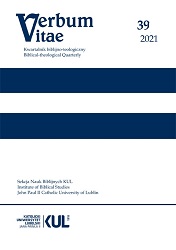Homoseksualność według starożytnych Greków
Homosexuality According to the Ancient Greeks
Author(s): Łukasz LaskowskiSubject(s): Social Philosophy, Social history, Gender history, Ancient World, Ancient Philosphy
Published by: Katolicki Uniwersytet Lubelski Jana Pawła II - Wydział Teologii
Keywords: homosexuality; ancient Greece; polis; sex; paideia; pederasty; Sappho; Alcman; Anacreon; Aristophanes; Plato; Xenophon; Aristotle; Theocritus;
Summary/Abstract: The article presents the issue of homosexuality in ancient Greece. Pederasty as a relationship between an adult male and a boy was a special part of mentoring. It is sometimes associated with the sexual oppression and intrusiveness relevant to a patriarchal society. Homosexual relations between peers and adults were known and accepted as long as they did not exceed the rules set by the polis. They could not violate the virtue of moderation and reduce men to the role ascribed to women, and the passive partner did not experience pleasure in the sexual relationship. Women could not take on the male role because it would mean achieving the pleasure inherent in men. The causes of homosexuality were sought in the positive will of god, explaining it as a desire to unite also with what is similar, as well as in nature and upbringing, and later in human physiology.
Journal: Verbum Vitae
- Issue Year: 39/2021
- Issue No: 1
- Page Range: 75-95
- Page Count: 21
- Language: Polish

